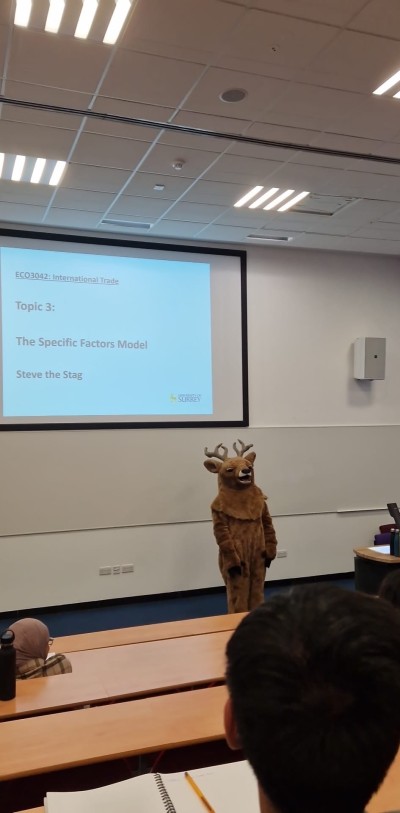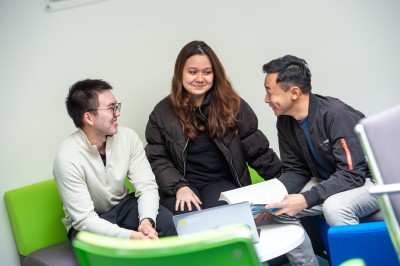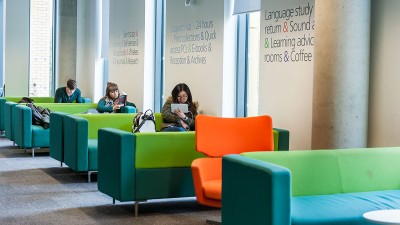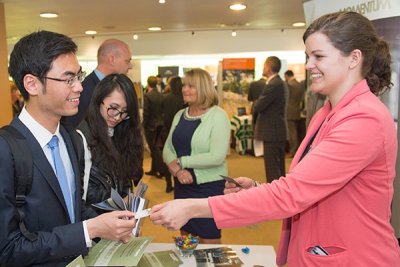Meet the academic: Dr Eric Golson
Dr Eric Golson, Programme Leader for our undergraduate Economics degrees, reveals what inspired him to get into the field, why you should study economics and what he’s looking for in a student.
Why should you study economics?
Economics helps to explain the world around us – including behavioural things like how and why we make particular choices (incentives) or how governments can maintain stability. It can be applied to almost every situation, including simple social interactions to multi-billion dollar business deals. For example, I live with a flat mate who believes Marx is right: that we would be better off with a more socialist approach to labour and capital. This view isn’t necessarily wrong, it just ignores the fact socialist societies generally have not maintained sufficient incentives: if you are being paid anyway, regardless of your output, why keep working?
Why study economics at Surrey?
I believe Surrey is the place to study economics because we are a family of 50+ academics committed to teaching our students to ask the right questions and find the answers grounded in data. We long to teach people who respond to the questions.

What excites you most about your current role?
University administration! No wait, definitely not. The best part of my job is watching students move from answering my questions to asking their own difficult questions which I cannot easily answer. It is only then I know they are ready for the working world or further study.
I like challenges and problem solving, especially when it comes to helping students. I have taken some unorthodox teaching approaches: three years ago I agreed that if a struggling student obtained a First Class degree that I would give a full two-hour lecture dressed as the University's mascot, Steve the Stag. This turned out to be a motivator not only for this student, but for the whole class! And as you can see in the photo, I did deliver a lecture as Steve....
Who have you worked with and what does this involve?
I work with governments and international organisations to understand the economics of warfare; right now this everything from what happens to food availability and pricing during a conflict; to monetary effects like what happens to the value of money during an invasion (inflation); how to provide weapons to countries on a lend-lease basis; and how effective are sanctions in slowing or stopping modern warfare (hint: not very effective at all). With the last one, I’m currently trying to understand how to plug holes in the sanctions regime, which has brought me to my latest project, pre-emptive purchasing.
In a nutshell, what is pre-emptive purchasing?
Pre-emptive purchasing is buying up strategic goods which your enemy needs before they come to the global market. This was used a lot by the Allies in World War II to prevent the Axis powers from having access to resources which would have allowed them to produce more tanks, planes, and munitions. I’ve been working on using it strategically in the current conflict in Ukraine.

What are your interests outside of academia?
I’m an avid alpine hiker and enjoy travelling around the world. My research and work this past year has taken me to the US on six occasions, to Japan for a month and all over Europe. I have a side passion for transportation economics, so travel for me still involves economics.

What do you look for in an undergraduate student?
Students who have a genuine interest in economics – in asking difficult questions and finding the answers. This is not always the easiest thing to do.
Any tips for time management?
Hold yourself accountable to the goals you set. I’m writing a textbook at the moment and I’m discovering I’m not the person to ask for time management advice! Like everyone at the moment, I find myself easily distracted by my phone, social media, thoughts about other things, rather than actually writing.
It is tough to focus – but I generally find now if I put distractions away, work in silence, and go into ‘focus mode’ with a reasonable list of what I can accomplish that day, it gets done. But the trick is to hold myself accountable for not doing things so that I make sure I keep up with my deadlines. If I don’t finish something that day and I need to, I don’t let it go until the next; I cancel dinner with friends and crack on.

What are your top tips for revision?
Listen to your professors and be prepared to do the long answers! Moving from A-levels to University means you can no longer rely on just memorising a stock answer or set of points. At University level, you have to walk into exams expecting the question you didn’t want, the question you didn’t study for, you should be prepared to break it apart and answer it.
How do you assess students’ work?
Economics is a hugely deep and versatile subject, so there is not any single right answer or method of assessment. This means we have a huge diversity of assessment types: sometimes group projects modelling a particular financial derivative; or a final project might look at how to create a computer programme to analyse financial accounts. Other times understanding corporate accounting can only best be done by looking at financial statements. This is a huge advantage for our students on the labour market compared to other business-oriented disciplines.

How do you help students with their employability (and further studies)?
After 15 years of teaching in the UK, US, France, Germany and elsewhere, I have a massive global network of friends and graduates. The job market at the moment is tough, so part of my role as a mentor for students is to connect them with graduates and others in my network in the hope this will give them a leg up in finding the right job.
What’s your advice for a career in economics?
Regardless of whether you want to be an academic, a banker or a cashier, always speak your mind! Thinking about things in terms of economics is never wrong. Sometimes the questions which should be asked, but are never asked, end up being the most interesting and can lead to profit.

How do you support students?
As undergraduate programme director I’m here to support students. That takes all kinds of different forms: sometimes it is about discussing academic issues, other times issues outside of the classroom which are affecting their studies. For example, recently I’ve been working on a project to improve the early detection and support of dyslexic students, as we find the rates of undiagnosed dyslexia are on the increase for incoming students. Regardless, my door is always open to support students: I want my students to succeed and graduate!
